Advocates say state’s Health Incentives Program ‘more important than ever’
|
Published: 02-28-2025 5:11 PM
Modified: 03-01-2025 6:54 PM |
ORANGE – As advocates prepare to head to the State House for March 13’s Healthy Incentives Program (HIP) Advocacy Day, at least one local store has seen the community fill the gaps left by December’s 50%, at minimum, reduction to the program.
Community organizations have joined the Quabbin Harvest Food Co-op on North Main Street in Orange in providing benefits to the 60 households still enrolled in HIP at the store, which has seen a 30% drop in participation since the program’s benefits were reduced to $20 through the end of the fiscal year. Original funding levels saw households of one to two people receiving up to $40, households of three to five getting up to $60 and houses of six or more people getting up to $80 per month.
HIP is a program that puts money back on EBT cards when people use their Supplemental Nutrition Assistance Program (SNAP) benefits to buy healthy, local produce from HIP vendors. Both HIP and SNAP are administered by the Department of Transitional Assistance (DTA).
“Typically, we have enrolled around 100 households every month and it’s down to 60 or a little less,” said Quabbin Harvest Treasurer Cathy Stanton, who added most customers using HIP were receiving about $40 a month. “That actually hurts the store because those are sales and it hurts the people we order from, like local farms and Marty’s Local … it just hurts people all along that local supply chain.”
Quabbin Harvest isn’t alone in seeing decreasing sales following the cuts. In January, the Atlas Farm Store reported seeing a 27% decrease in HIP and SNAP sales — a stark decrease compared to the average 15% to 20% increase the store sees every year.
The cuts are also reflected in DTA’s monthly stats. In December 2023, there were 53,125 transactions, an average incentive of $40.06 and a total of $1.23 million in HIP incentives earned, according to data DTA publishes every month.
In December 2024, there were 37,090 HIP transactions with an average incentive of $19.34. In total, $542,260 in HIP incentives were earned. The total number of HIP households also dropped from 43,039 to 28,037.
The cuts were the result of a $10 million budget deficit, as DTA’s line item for HIP was set at $15 million, instead of Gov. Maura Healey’s requested $25 million.
Article continues after...
Yesterday's Most Read Articles
 The ills of a billion-dollar enterprise: The slow-death of the cannabis industry, and what might be done to reverse the trend
The ills of a billion-dollar enterprise: The slow-death of the cannabis industry, and what might be done to reverse the trend
 Greenfield Fire Station’s energy use 250% higher than expected
Greenfield Fire Station’s energy use 250% higher than expected
 Avery’s General Store building in Charlemont for sale
Avery’s General Store building in Charlemont for sale
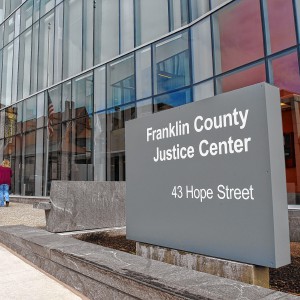 Former Mohawk Trail ski coach, Rowe park manager sued for alleged sexual assault of former student
Former Mohawk Trail ski coach, Rowe park manager sued for alleged sexual assault of former student
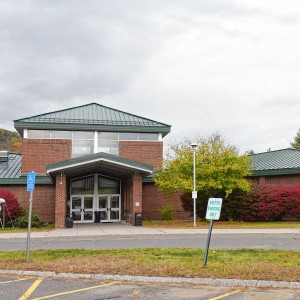 Sex assault complaint spurs review at Mohawk Trail Regional School District
Sex assault complaint spurs review at Mohawk Trail Regional School District
 UMass hockey: Minutemen fall to Western Michigan, 2-1, in Fargo Regional final
UMass hockey: Minutemen fall to Western Michigan, 2-1, in Fargo Regional final
State finance laws require DTA to operate within its appropriated budget and the agency opted to reduce the benefits in order to maintain a year-round program. To restore the funding back to its previous levels, the $10 million shortfall would need to be filled by a supplemental budget, which needs to be filed by Healey.
A supplemental budget may be on the way, according to state Sen. Jo Comerford, D-Northampton.
“I hear the administration is readying one,” Comerford said Tuesday. “We check in all the time.”
Healey, in a brief interview following her Transforming Transportation Roadshow in Conway Thursday afternoon, said she highly values HIP and pointed to her FY26 budget request of $18.82 million for the program, while also noting that discussions with legislators are ongoing.
“I proposed an 18% increase. It’s a really important program, too many families across Massachusetts, and particularly in this region, are dealing with food insecurity and that’s why I’ve always put a high value on supporting the program,” Healey said. “We’ll continue to stay in dialogue with the Legislature about this.”
While Comerford can’t speak for the House, she said the Senate is likely to eye a funding level of $22.5 million for the upcoming fiscal year.
“I hope the Senate goes higher,” she said. “We went higher last time.”
Until funding comes through, though, businesses like Quabbin Harvest have found aid in their communities. The first to come through was the North Quabbin Garlic and Arts Festival’s community grant program, which donated a co-op gift card to each HIP recipient earlier this month to allow people to purchase another bi-weekly produce share or other groceries at the store.
Then, the Quabbin Food Connector, a volunteer nonprofit that supports area food projects connected to healthy food access, is preparing another donation, while a private donor is also contributing two more months of gift cards, which will stretch the HIP benefits into April.
Stanton said the community stepping up in this time of need is a symbol of the culture in Franklin County.
“There’s a real culture here of helping each other out and jumping in when needed and I think that’s what it really illustrates,” Stanton said of the community helping out. She added these initiatives and trying times are a reminder of how people came together during the pandemic, although at a smaller level.
“I feel, maybe, this is a similar moment. It’s not that much of a crisis of supply chains,” she continued, “but I think people are recognizing [the need] and that’s what behind these donations.”
Stanton is hopeful a supplemental budget is filed, but she said they haven’t heard anything from the state.
“That’s what’s been so frustrating. We know there’s a lot of noise,” she said. “This should be a slam dunk.”
HIP Advocacy Day is an annual event held each year at the State House and organized by the Massachusetts Food System Collaborative. The event sees advocates from around the state travel to Boston to brief legislators on the importance of HIP and how it provides access to healthy, locally grown food. It also serves as an opportunity to ask the Legislature to fund the program and this year’s ask will be $25 million, according to Massachusetts Food System Collaborative Policy Director Rebecca Miller.
“Generally, there’s a lot of widespread support for HIP in the State House,” Miller said. “It’s a really fun day. It’s personally one of my favorite days at the State House.”
Miller encouraged advocates from around Franklin County to join her and the 50 to 100 people who attend HIP Advocacy Day every year. The event runs from 10 to 12:30 and provides an opportunity for people to directly speak to legislators. Those interested in more information can reach her at rebecca@mafoodsystem.org.
While HIP Advocacy Day is held every year, Miller said this year’s event is taking on a new level of importance, especially as the federal government considers sweeping funding cuts in the coming weeks. The House budget likely to come before lawmakers is proposing cutting $230 billion from the House Agriculture Committee, which oversees SNAP, and much of those cuts could come from the program, according to Feb.21 reporting from NBC News.
“It’s more important than ever to see full funding for HIP,” Miller said. “We want to see full funding, so we can reverse those cuts … With the threat to federal cuts to SNAP, HIP is more important than ever.”
If SNAP sees significant cuts, folks in the Pioneer Valley will feel the effects, according to Christina Maxwell, the director of programs at the Food Bank of Western Massachusetts. There are approximately 113,000 households in western Massachusetts that rely on SNAP benefits, which bring in about $35 million to the region each month. Those dollars go to grocers, farmers and other businesses, according to the Food Bank.
“Cuts to SNAP funding will have a detrimental impact across the region,” Maxwell said in a press release. “Our region’s food assistance network is strong, but if demand for food increases dramatically, we will need additional support to ensure people in our community have food when and where they need it.”
The need for food assistance is also growing, as the Food Bank of Western Massachusetts reported the number of people seeking assistance from its 193-member food pantries, meal sites and shelters rose to 142,000, the most it has ever served in one month.
Comerford, too, said the possibility of funding cuts is alarming and it should kick Massachusetts into gear.
“The chaos at the federal level gives an imperative to be as steady and stable as possible, especially in regard to basic human needs like food,” she said. “The legislators in western Mass., we feel this urgency, we feel the pressure that mounts every day … The state needs to signal that we understand that need to do every single thing we can.”
Chris Larabee can be reached at clarabee@recorder.com.

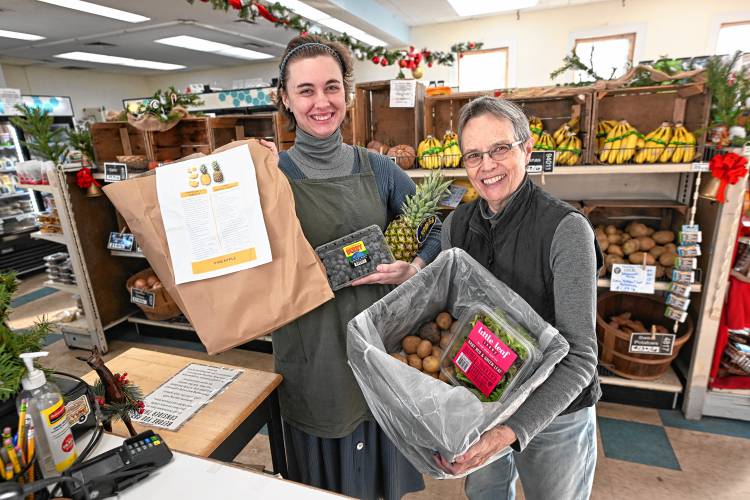
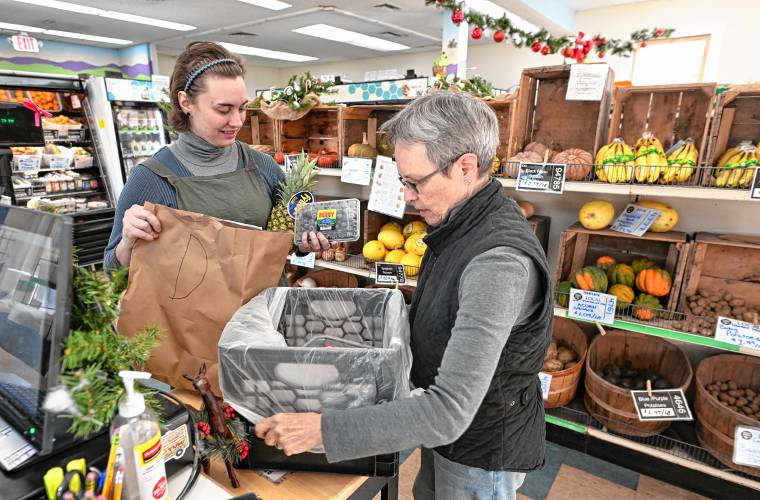





 Stage on Main exhibit displays Athol resident’s work through the decades
Stage on Main exhibit displays Athol resident’s work through the decades Shelburne voters asked to consider opioid fund transfers, CPA uses
Shelburne voters asked to consider opioid fund transfers, CPA uses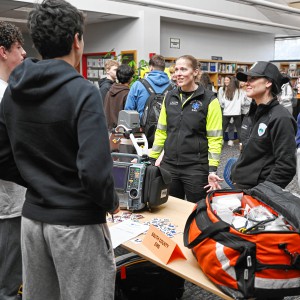 PHOTOS: Career conversations
PHOTOS: Career conversations
